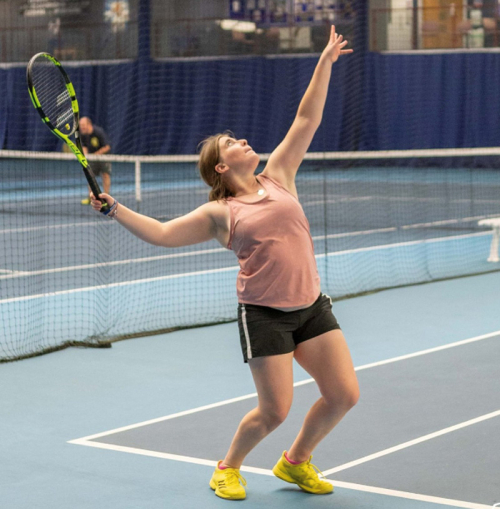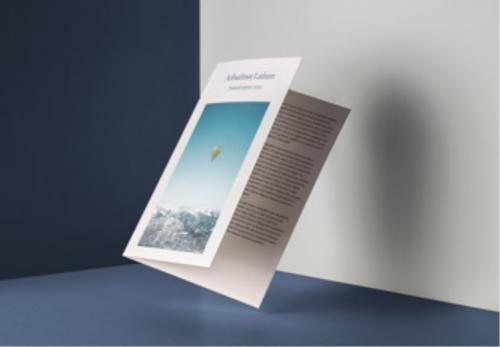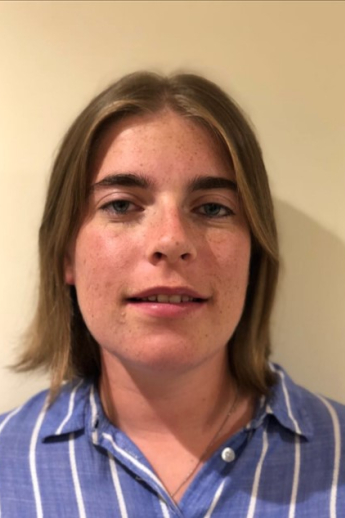Working at Arbuthnot Latham -
Competing in the European Transplant Games
Working at Arbuthnot Latham means making the most of life inside and outside of work. We speak to Flora King, HR Administrator about her achievements after having a kidney transplant aged 12.

Back in 2010, I became very ill with Nephronophthisis - a genetic condition.
One of the unfortunate effects of my illness was that it caused my kidneys to fail. I was told that I would need a kidney transplant and I would have to start dialysis if a new kidney was not found in time.
The good thing about kidneys is that you only need one to live, in fact, one in 750 people only have one kidney and never know. Because most people have two kidneys, the most likely source of a transplant is from a living person. It is a small comfort that your own life is not dependent on someone else losing theirs.
The search for a new organ can start close to home, as family members are more likely to be a match than a stranger. When searching for a donor, potential matches undertake genetic testing, and the suitability of donors is measured from 0-6.
Where my family were concerned, my mum scored a 2/6, but my dad was a 4/6, making him the obvious choice; dad hates needles though and asked if we had told the nurse to say it was his kidney I needed!
It is quite a strange process. Before the operation during a pre-op meeting at the Organ & Tissue offices, a lady asked me, in all seriousness, how much I was paying for the kidney. At the time I was baffled and looked for mum’s approval before I said ‘nothing, it’s my dad’s.’
I realise now why they must ask such questions, but I started to wonder how much I had in the piggy bank!
There were a number of frustrations along the way. Because I was a child, I was being treated by the wonderful team at Great Ormond Street, but they only do one organised transplant a month.
Dad had a cold when we were scheduled for the first operation in July 2010 (I am convinced it was man-flu). After a transplant you need immunosuppressant drugs to stop your body rejecting the organ. Your ability to fight off infection is limited so dad’s cold meant we had to reschedule.
We finally went into hospital on 5 October 2010; me at Great Ormond Street and Dad at Guys & St Thomas’.
Dad is very safety conscious and did not want his kidney to come via a motorcycle courier (the usual method of transport), so a nurse had to jump in a black cab with his kidney in a cooler box.
The operation went well, the kidney was in good condition and my dad and I both recovered well.
I was 12 years old when this happened, so was quite emotionally aware. I knew my situation was unusual, but I think I would find that scenario much harder to deal with as an adult. School was such a big part of my life and while, for some, six weeks off would be a dream, I found that part difficult.
You have a lot of responsibility after the operation. 12 years on, I still take six tablets a day to control my blood pressure as well as steroids and immunosuppressants to make sure my body does not reject the kidney.
Transplants do not last forever. The record for kidneys is 50 years. The worse the match the faster your body starts to reject it. I am 12 years post-transplant and things are going well, so fingers crossed hopefully I have some time to go before I need to start thinking about it.

 Flora and her Dad at Newcastle, World Transplant Games 2019. Flora with her youth worker, Daley Cross at WTG 2019 celebrating Gold medals in Tennis Singles, Women’s Doubles and Ball Throw with a Silver in Squash.
Flora and her Dad at Newcastle, World Transplant Games 2019. Flora with her youth worker, Daley Cross at WTG 2019 celebrating Gold medals in Tennis Singles, Women’s Doubles and Ball Throw with a Silver in Squash.
Attending the Transplant Games 2022
I was very sporty before I became ill, playing hockey, tennis, and running cross-country. I was initially concerned about what exercise I would be able to do after the operation.
When I was in the hospital, they told me about the transplant games that happen every year, a nurse said: “When you’re back fighting fit, it’s a great opportunity.”
Because of the steroids recipients of a donor organ have to take, they would struggle to compete at most competitions. The transplant games, whether British, European, or Worlds, are a safe space for those with similar experiences to meet and compete.
It is not just a weekend of sporting madness, but you make good friends too. It is a great community, and the games give us a grand stage to thank our donors. As mentioned previously, the transplanted organs do not last forever, and sometimes new ones are not found in time.
I have competed with a few friends who are no longer with us, showing just how short life is so you have got to live everyday like it is your last! The games give you time to reflect on just how fragile and special life is.
In the UK, the transplant games are hosted every year by a hospital in a different city, but the Europeans are also taking place in Oxford this year, at the end of August. It is close to my heart because Oxford is where my current hospital is, and I grew up near there, so I want to do them proud. I will be competing in tennis and have spent a lot of time on court recently along with cycling and some athletics.
I went to my first games in 2011 in Belfast. I won a couple of medals and was asked to compete for Team GB. The Europeans this summer are very important because if I do well, I could end up at the World Games in Perth next year.
It is not as competitive as professional sport, but with the games, you are representing your donor - they have given so many of us the gift of life and you want to do them proud.
It is also a fantastic way to increase awareness around organ donation. Due to the opt-out system, even if you are signed up to the register, it is your family who have the final say, so please - if you take one thing away from this article - have the discussion with your loved ones around your wishes.
Working at Arbuthnot Latham
Training for the games is a commitment, so agile working at Arbuthnot Latham helps me make the most of my spare time.
The bank is committed to supporting colleagues and has offered to sponsor me at this year’s event.
I am looking forward to seeing so many friends again in a few months, and hopefully to winning a few medals as well.
Further reading

Star to make Commonwealth Games debut
Paris 2024 fencing hope, Ben Andrews is a Business Support Executive based in Exeter. He has just become the Senior British Fencing Champion and makes his Commonwealth Games debut this summer in London.

How mentoring can help develop your career
Changing disciplines can be one of the biggest career challenges. Kerry Prior, Senior Platform Lead at Arbuthnot Latham explains how mentoring helped her, and how she is sharing her experiences with others.
Becoming a client
Take control of your finances today by completing our enquiry form. Alternatively, you can call us on the number below and one of our team will be more than happy to talk about your future.
Brochures & email subscriptions
Request a brochure, or subscribe to our email updates.

Author -

Flora King
HR Administrator
Flora joined Arbuthnot Latham in 2021. She is passionate about delivering the best service both internally to colleagues and externally to clients. She is currently studying towards her level five CIPD qualification after working within HR for three years.